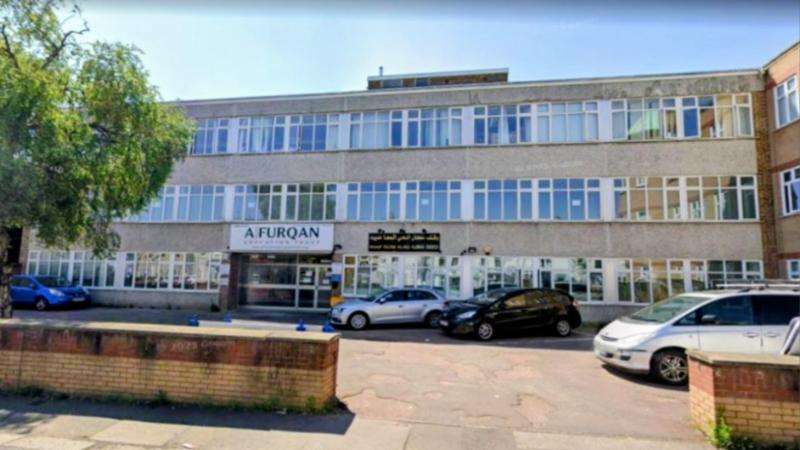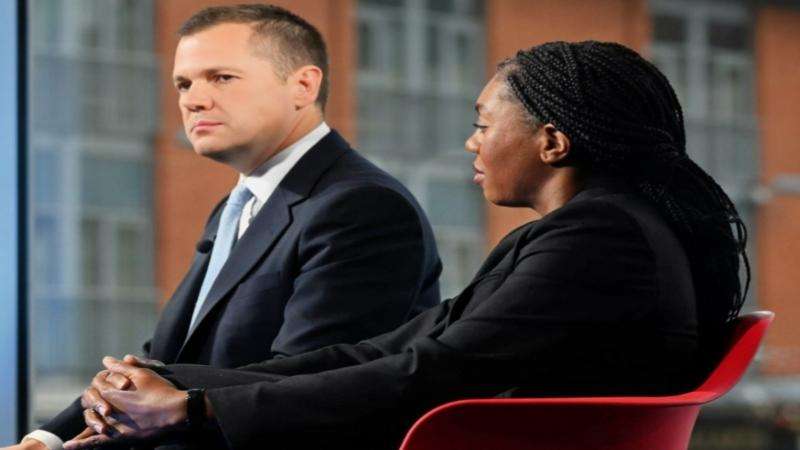Dhaka–Islamabad Foreign Office Consultation (FOC) is likely to held in Dhaka this year after a gap of nearly 15 years, sources in Dhaka, Islamabad and Karachi said.
The planned FOC was cancelled several times on various grounds, including diplomatic row between the two countries following the trial of war criminals in Bangladesh.
The last bilateral consultation between the countries was held in Islamabad in 2010.
The Dhaka-Islamabad talks are important against the backdrop of changing environment in Bangladesh and in bringing the relations between the Bangladesh–Pakistan multilateral relations to new height. The relations between two South Asian counties reached the historic low during the last Awami League regime ranging between 2009-2024, said some Bangladesh diplomats.
Sources said both countries are working on holding the planned (FOC) this year as Bangladesh intends to come of the ‘Indian spider net’ and is now pursuing an independent Foreign Policy after long 17 years.
After the ungracious departure of former Prime Minister Sheikh Hasina on August 5, 2024, the Indian establishments and the media are bearing an unhealthy mindset causing an immense embarrassment to Bangladesh.
The Indian establishment has developed and portrayed a scenario that radicals and Islamists are controlling Bangladesh across the world.
The Indian establishments and media are strong across the world and doing deep conspiracy against Bangladesh and the interim government, headed by Nobel Laureate Professor Mohammad Yunus.
Meanwhile, Bangladesh may raise the long-pending issue of seeking unconditional and formal apology from Pakistan for the barbarities of its forces on innocent Bangladeshi civilians in 1971 during the next round of Foreign Office Consultation (FOC) in Dhaka.
“Discussions could center on how they can strengthen cooperation within regional framework, SAARC. Bangladesh and Pakistan could increase bilateral scholarships and academic exchanges between universities. This would foster intellectual exchange and a better understanding of each country’s socio-political systems. They could also collaborate on research projects related to science, technology, and social studies, strengthening the academic ties,” said a Mofa official.
Meanwhile, the immediate past Bangladesh High Commissioner Md. Ruhul Alam Siddique worked 4 years in Islamabad and also worked in Karachi mission to deepen economic relations.
Incumbent Bangladesh High Commissioner to Pakistan Muhammad Iqbal Hussain Khan has been working hard to deepen social, economic and cultural connectivity to a new height, sources in Dhaka and Islamabad said.
Another official said that trade and investment issues with focus on simplifying process, enhancing cultural exchange, visa process, stranded Pakistani issue and other unresolved ones will come up in ‘different shapes’ during the discussion.
Holding trial of the accused 195 military personnel for their brutal role in 1971 and giving compensation to the victim families in Bangladesh may also be discussed in the FOC.
Sources in Dhaka, Karachi, Lahore and Islamabad said some 25 lakh Bangalee- Bangladeshis live in Karachi and most of them hold Pakistani passports.
Sources said even 5.00 per cent of 25 lakh Pakistani Bangalees intend to visit Bangladesh every year, the social connection between two counties will be gradually improve that suffered during the last 15 years.
The trade between two countries is hovering around 800-900 million US dollars, less the potentials both countries hold, said a Federation of Bangladesh Chambers of Commerce and Industry (FBCCI) director .
The Bangladesh high commission in Islamabad and the mission in Karachi squeezed the issuance of the visas to Pakistani civilians and business leaders on security and strategic grounds, said some Mofa officials and Bangladesh diplomats who worked during 2009-2024 period.
“Unless Bangladesh can issue visa to Pakistani businessmen and civilian at regular speed, the trade potentials will remain low,” said a Mofa officials and a FBCCI leader.
Meanwhile, a delegation of the Federation of Pakistan Chambers of Commerce and Industry (FPCCI), led by its president Atif Ikram Sheikh, met Commerce Adviser Sk Bashir Uddin at the Commerce Ministry Conference Room at Bangladesh Secretariat in Dhaka on Sunday.
During the meeting, they discussed in detail issues related to bilateral trade between the two countries, simplification of visa procedures, launching of direct flight operations between Pakistan and Bangladesh, and future investment prospects.
The Commerce Adviser said that initiatives have already been taken to make sustainable trade relations with Pakistan, according to a Commerce Ministry press release.
Considering the population volume of the two countries, he said that the volume of trade is still very low. “Both the countries have opportunities to increase trade further.”
Bashir emphasised that Pakistani businessmen need to have more dialogue with Bangladeshi businessmen. He said that exploring possible cooperation between them would benefit both countries.
The president of FPCCI, the apex trade body of Pakistani businessmen, said that Pakistani businessmen want to increase their trade and commerce with Bangladesh.
He cited that due to visa-related complications and a lack of direct flight operations, Pakistani businessmen are not being able to increase their trade and commerce with Bangladesh at the desired level.
In this regard, Atif called for taking the initiative to resolve the existing complications.
The Pakistani business delegation expressed their interest in investing in agricultural production and marketing, education, tourism and ceramic sectors in Bangladesh.
Mentioning that the Pakistan government has launched an export facilitation scheme, they said that Bangladeshi businessmen can invest in Pakistan under this scheme.
They also expressed their interest in organising a trade expo in Bangladesh.
Pakistan High Commissioner in Dhaka Syed Ahmed Maroof was present at the meeting.
The Pakistani business delegation is now visiting Bangladesh at the invitation of the Federation of Bangladesh Chambers of Commerce and Industry (FBCCI).
Pakistan has announced a new visa policy allowing citizens from 126 countries, including Bangladesh, to travel to Pakistan without a visa fee, to enhance diplomatic and people-to-people ties.
Pakistan's High Commissioner to Bangladesh, Syed Ahmad Maroof, informed about this development to the Home Affairs Adviser Lt Gen (Retd) Md Jahangir Alam Chowdhury during a meeting held today at the Secretariat, according to a press release.
During the meeting, the high commissioner highlighted that the new visa policy, which was introduced two weeks ago, aims to simplify travel procedures and promote tourism and business between Pakistan and the included countries.
Bangladesh, being one of the 126 nations on the list, stands to benefit from this initiative.
Maroof emphasised that this policy is part of Pakistan's broader efforts to strengthen bilateral relations and enhance cooperation with Bangladesh. He also expressed optimism that the travel arrangement without any visa fee would lead to increased interactions in various sectors, including trade, education, and cultural exchanges.
In addition to the visa policy, the meeting also covered discussions on resuming direct flights between the two countries, which had been suspended since 2018. The envoy stressed the importance of reinstating these flights to further facilitate travel and business engagements between Pakistan and Bangladesh.
The new visa policy is expected to be a major step forward in improving bilateral relations, which have seen a period of relative stagnation over the past 15 years. Both sides agreed on the need to overcome past challenges and work towards a more collaborative future.
Senior officials from both countries, including Kamran Dhangal, Counselor of the Pakistan High Commission in Dhaka, and home ministry officials were present at the time.
Meanwhile, Bangladesh High Commissioner to Pakistan Muhammad Iqbal Hussain Khan announced that direct flights between Pakistan and Bangladesh are expected to begin within the next few months, adding that this initiative would enhance connectivity and strengthen economic and cultural ties between the two countries.
During a meeting with Islamabad Chamber of Commerce and Industry (ICCI) President Nasir Mansoor Qureshi and his team, the high commissioner also revealed plans to launch cargo flights connecting Dhaka, Karachi, and Lahore. He stated that these services would facilitate trade and business exchanges, providing a significant boost to bilateral commerce.
Khan underscored Bangladesh’s commitment to fostering stronger business partnerships with Pakistan, highlighting the ease of obtaining Bangladeshi visas online for Pakistani citizens.
He encouraged both countries to explore joint ventures and industrial collaborations to maximize mutual benefits. He pointed out that there are numerous opportunities for businessmen from both nations to establish partnerships that could contribute to economic growth.
Discussing trade potential, the high commissioner emphasized various sectors where cooperation could be expanded. He noted that Pakistan exports sugar, steel, surgical instruments, cement, dry fruits, pink salt, milk products, marble, and coal to Bangladesh, while Bangladesh could supply Pakistan with tea and jute, creating a balanced trade relationship.
ICCI President Nasir Mansoor Qureshi stressed the role of economic diplomacy in advancing trade, industry, and business collaborations between the two nations. He expressed his intention to lead a delegation of potential investors to Bangladesh at the earliest opportunity to sign memoranda of understanding with the Dhaka Chamber of Commerce and Industry and other relevant bodies.
Qureshi also highlighted ICCI’s facilitation desks, which assist the business community in overcoming trade-related challenges. He mentioned other ICCI initiatives aimed at boosting economic activity, such as exhibitions and expos.
Former ICCI Presidents Zubair Ahmed Shaikh, Mian Akram Farid, and Mian Shaukat Masood emphasized that Bangladesh presents a promising opportunity for rapidly expanding bilateral trade. They noted that sectors such as industrial collaborations, joint ventures, technology transfers, business-to-business engagements, and chamber-to-chamber cooperation offer significant growth potential.

_8.jpg)
_5.jpg)
_8.jpg)




.svg)
